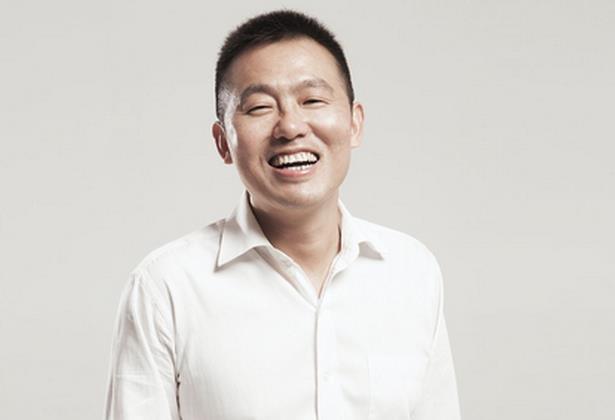Person of the Year: You 年度人物:“你” (1) The "Great Man " theory of history is usual
Person of the Year: You年度人物:“你”
(1) The "Great Man" theory of history is usually attributed to the Scottish philosopher Thomas Carlyle, who wrote that "the history of the world is but the biography of great men." He believed that it is the few, the powerful and the famous who shape our collective destiny as a species. That theory took a serious beating this year.
(1)通常认为历史上的“伟人”论起源于托马斯·卡莱尔,一位写下“世界的历史不过是 伟人的传记”的苏格兰哲学家。他认为“伟人”是那些极少数的、强有力而又闻名于世,可以决定人类集体命运的特殊个体。这种理论在今年遭遇到严重挫折。
To be sure, there are individuals we could blame for the many painful and disturbing things that happened in 2006. The conflict in Iraq only got bloodier and more entrenched. A vicious skirmish erupted between Israel and Lebanon. A war dragged on in Sudan. A tin-pot dictator in North Korea got the Bomb, and the President of Iran wants to go nuclear too. Meanwhile nobody fixed global warming, and Sony didn't make enough PlayStation3s.
当然,我们可以因发生在2006年的许多充满痛苦和不安的事件谴责某些人。伊拉克冲突只不过变得更加血腥动荡,以色列和黎巴嫩爆发了激烈的小规模战争,苏丹内战持续不断,让人不齿的朝鲜独裁者进行了核爆,甚至伊朗总统也寻求发展核武器。同时,没有人能解决全球变暖,索尼公司也没有生产足够的PS3。
But look at 2006 through a different lens and you'll see another story, one that isn't about conflict or great men. It's a story about community and collaboration on a scale never seen before. It's about the cosmic compendium of knowledge Wikipedia and the million-channel people's network YouTube and the online metropolis MySpace. (2)It's about the many wresting power from the few and helping one another for nothing and how that will not only change the world, but also change the way the world changes. 但回首2006,
通过一个不同的镜头你会看到另一个无关冲突或是伟人的故事。它是有着前所未有的规模,涉及社会和分工协作的故事。这就是包罗万象的维基百科和有着数以百万个人网络视频的YouTube以及在线社区MySpace。(2)这是多数人从少数人那里夺取权力,并无私的互相帮助的故事。它不只会改变世界,还改变了世界变更的方式。
The tool that makes this possible is the World Wide Web. Not the Web that Tim Berners-Lee hacked together (15 years ago, according to Wikipedia) as a way for scientists to share research. It's not even the overhyped dotcom Web of the late 1990s. The new Web is a very different thing. It's a tool for bringing together the small contributions of millions of people and making them matter. Silicon Valley consultants call it Web 2.0, as if it were a new version of some old software. But it's really a revolution.
使这一切成为可能的是万维网。不是那个蒂姆·伯纳斯-李爵士创建的(15年前,据维基百科)用于科学界共享研究成果的网络,甚至也不是自1990年以来风头一时无俩的“稻糠亩”(.com)网络。这些新兴网络是绝对不同的事情,这是将数百万人的微小贡献集合成型的工具。硅谷专家称之为第二代网际网络(Web 2.0),就像是某些旧软件的新版本一样。不过这确实是一项革命。
And we are so ready for it. We're ready to balance our diet of predigest ed news with raw feeds from Baghdad and Boston and Beijing. You can learn more about how Americans live just by looking at the backgrounds of YouTube videos—those rumpled bedrooms and toy-strewn basement rec rooms—than you could from 1,000 hours of network television. 我们是如此迅速的接受这一切。我们已作好了既收看预订的新闻,又观看来自巴格达、波士顿和北京的原汁原味实况报道。只需看看YouTube视频的背景-那些乱糟糟的卧室和墙角铺满玩具的录制间就可以更多地了解美国人的生活-比看1000小时的有线电视知道的还多。

